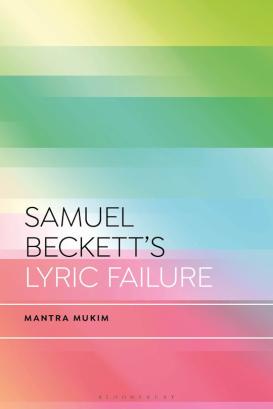
CLIC is thrilled to announce the release of Mantra Mukim's monograph Samuel Beckett's Lyric Failure (Bloomsbury Publishing).
Mantra Mukim is a Marie Skłodowska Curie Co-Fund Fellow (EUTOPIA-SIF) at CYU Paris and VUB Brussels. His research interests include global modernism, critical theory, twentieth century Hindi literature, decolonial studies, continental philosophy, and the lyric. As an Early Career Research Fellow at the Institute of Advanced Studies, University of Warwick (2022-23), his research focused on the Hindi poet Muktibodh, the long poem form, and modernist archives in the Indian subcontinent, something his new postdoctoral project builds upon.
Description
Providing one of the first book-length accounts of Samuel Beckett's poetry, this work illustrates how Beckett's poetry, and its failures, reconfigure the lyric form. Reading Beckett alongside nineteenth and twentieth century European poets such as Hölderlin, Mallarmé, Rimbaud, Montale, and Apollinaire, the book situates failure in the triangulation of the lyric impulse, subjectivity, and the human voice.
Beckett, in his poems, employs lyric tactics that range from deixis, parataxis, and caesura to specific kinds of timbre, resonances, and punctuations. These tactics situate the poetic voice in the liminal points between life and death, event and non-event, beginning and ending, and more broadly, between expression and failure. The book frames these liminalities under the rubric of 'lyric failure'.
Moving beyond the usual comparisons with his prose and drama, the study highlights failure as a generative force that structures Beckett's anti-expressive poetics.
